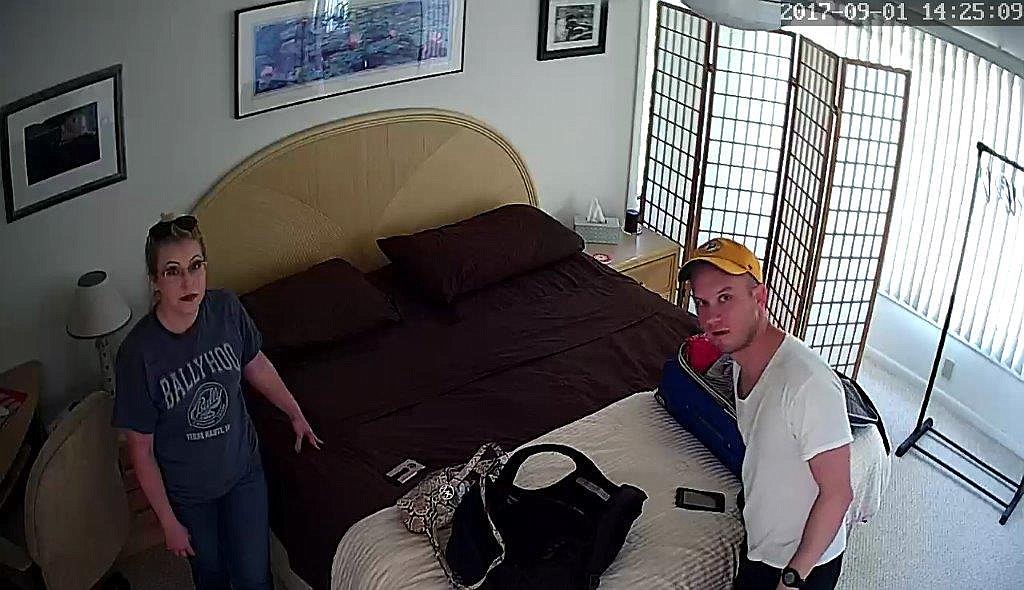- April 9, 2025
-
-
Loading

Wayne Natt could lose his Longboat Key condo at 623 Cedars Court in the fallout of an alleged video voyeurism felony he was arrested for on Sept. 29.
Longboat Key Police Department allege Natt hid cameras and microphones around his condo — which he rented through the popular short-term rental service AirBnB — and recorded at least one set of tenants without their knowledge. At least one man was filmed naked, police say.

Now police believe they’ve built a case to prove by a preponderance of the evidence that the condo was used to commit a felony — which, if backed up in court, gives the town authority to seize the property under state law.
“If someone puts our public, residents or visitors, at risk by use of their property, they’re not going to get away with it and the penalties are going to be severe here on Longboat Key,” Town Manager Dave Bullock said Nov. 6 to the Town Commission, which approved the pursuit of civil litigation by a vote of 4-3.
This charge — known as civil asset forfeiture — is not directed against the owner but the property itself. The owner must be charged with a felony and the property must be proven to have been used to commit the crime by a preponderance of the evidence. The validity of such a case is not dependent on a conviction.
Florida law permits an arresting agency to pursue forfeiture action against a property it believes was “used as an instrumentality in the commission of any felony,” according to the statute.
Regina Kardash, an attorney with Person and Cohen, PA filing the civil complaint with the Manatee County Clerk of the Court on behalf of the town, must provide the court with criminal arrest documents and probable cause that the property was used in the commission of a crime before a complaint can be filed, she said. The case had not yet been filed in Manatee County by Tuesday afternoon.
Then comes a minimum of $1,000 filing fee and a $1,500 bond, which could be lost if the case is not substantiated. The town could also have to pay plaintiff’s attorney fees up to $2,000 and would be responsible for a loss in value to the seized property if it cannot prove its case.
But if court finds in favor of the police department, state law permits the arresting agency to retain the property, salvage or trade it to a public or nonprofit organization or sell it. Any funds received from selling a property may be used, in order of priority, to pay court liens, preserve the property, pay costs of the forfeiture proceedings, used for special law enforcement trusts, training or equipment.
“This is the type of case these laws were written for,” Longboat Key Police Chief Pete Cumming said.
The condo at 623 Cedars Court is valued at $170,850, according to the Manatee County Appraiser’s office. But state law does not permit town officials to take this into account when filing a civil asset forfeiture complaint. The property is a two-story, one-bedroom/two-bath condo with about 1,200 square feet of living area.

Longboat police have not exercised this right in the past decade, Cumming said.
And these laws are not often used to seize real property. The latest report on civil asset forfeiture in Florida, compiled by the Office of Program Policy Analysis and Government Accountability in 2015, found two cases of real property forfeiture statewide in fiscal year 2013-14.
Since September 2001, of the 74 cases of civil asset forfeiture in Manatee County, where 623 Cedars Court is located, not one includes real property seizure, according to information provided by the county.
Thirty-five cases involved seizure of money, in 12 of those $10,000 or more was taken. Five of these cases were dismissed, three of which involved forfeiture of more than $10,000. The largest sum totaled more than $100,000.
Thirty-six vehicles were seized in that time, of which 10 were given back to the owners and one is still in the judicial system. Three cases involved both money and a vehicle: law enforcement seized $1,457 and a 1989 Cadillac Fleetwood in 2001; the other two cases have not been completed.

Local and state law enforcement are hesitant to take real property, Kardash said, because if the property is won, the seizing agency is responsible for maintaining the homestead.
But at the meeting with commissioners, Bullock was adamant that this action is not founded in financial priorities.
“It sends a message that we will protect our residents and we will use all legal means for us to do it,” Bullock said.